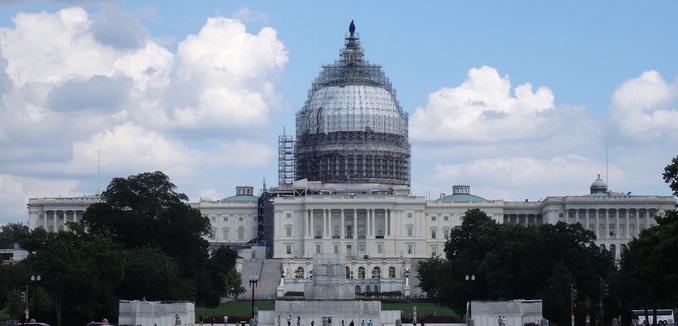Two prominent Democratic lawmakers joined a growing number of their Republican colleagues in expressing opposition to the Obama administration’s plan to grant further sanctions relief to Iran, including access to the American banking system and the ability to conduct transactions in U.S. dollars, The Wall Street Journal reported (Google link) on Friday.
House Democratic Whip Rep. Steny Hoyer (D – Md.), who supported the nuclear deal, sent President Barack Obama a letter expressing his opposition to giving Iran any additional sanctions relief “without a corresponding concession. We lose leverage otherwise, and Iran receives something for free.” In a similar vein, Rep. Brad Sherman (D-Calif.), who is one of the highest ranking Democrats on the House Foreign Affairs Committee and voted against the Iran nuclear deal, argued in a letter Obama on Thursday that additional sanctions relief “will set bad precedent, and it will not be the last time the Iranians and/or their business partners receive additional relief.”
House Speaker Rep. Paul Ryan (R – Wis.) also called on the administration to give up the idea of allowing Iran access to U.S. dollars, while Senators Marco Rubio (R-Fla.) and Mark Kirk (R-Ill.) sent a letter to U.S. Treasury Secretary Jack Lew on Wednesday stating that “any such efforts would benefit Iran’s financiers of international terrorism, human rights abuses, and ballistic missile threats.”
Mark Dubowitz, an Iran sanctions expert and executive director of the Foundation for Defense of Democracies (FDD), told the Associated Press that the administration’s plan “is above and beyond what is required by the nuclear deal.”
The administration had previously affirmed that Iran would not be given access to the U.S. financial system. “Senior officials in the Treasury Department have repeatedly assured Congress that the Administration will not allow Iran direct or indirect access to the U.S. financial system,” Rubio and Kirk noted in their letter. Dubowitz further called the move “a bait and switch which ignores a long-standing administration commitment not to greenlight Iran’s access to the greenback.”
Experts have cautioned that granting additional financial relief to Iran jeopardizes the standing U.S. sanctions regime. Dubowitz warned last week that if the administration “[permits] this, it is the end of U.S. sanctions on Iran.” He explained in op-ed co-authored with Jonathan Schanzer, vice-president for research at FDD, that Iran has a history of engaging in illicit financial activities. This record led the U.S. Treasury Department in 2008 to ban U.S. “institutions from processing ‘U-turns’ – temporary dollar transactions between non-U.S. banks and Iranian banks.” In 2011, the Treasury Department also found that “Iran’s entire financial sector is a jurisdiction of primary money laundering concern.” The Financial Action Task Force, a global anti-terrorism financing body, further warned in 2009 that Iran’s “failure to address the risk of terrorist financing” poses a “serious threat… to the integrity of the international financial system.” Dubowitz, along with Annie Fixler, a policy analyst at FDD, concluded in policy brief published earlier this week that “the next president’s ability to target Iran’s malign activities with non-nuclear sanctions will be much more difficult if billions of dollarized transactions are green lighted. The next administration won’t easily be able to reverse this once it is in motion.”
[Photo: MattCC716 / Flickr ]




